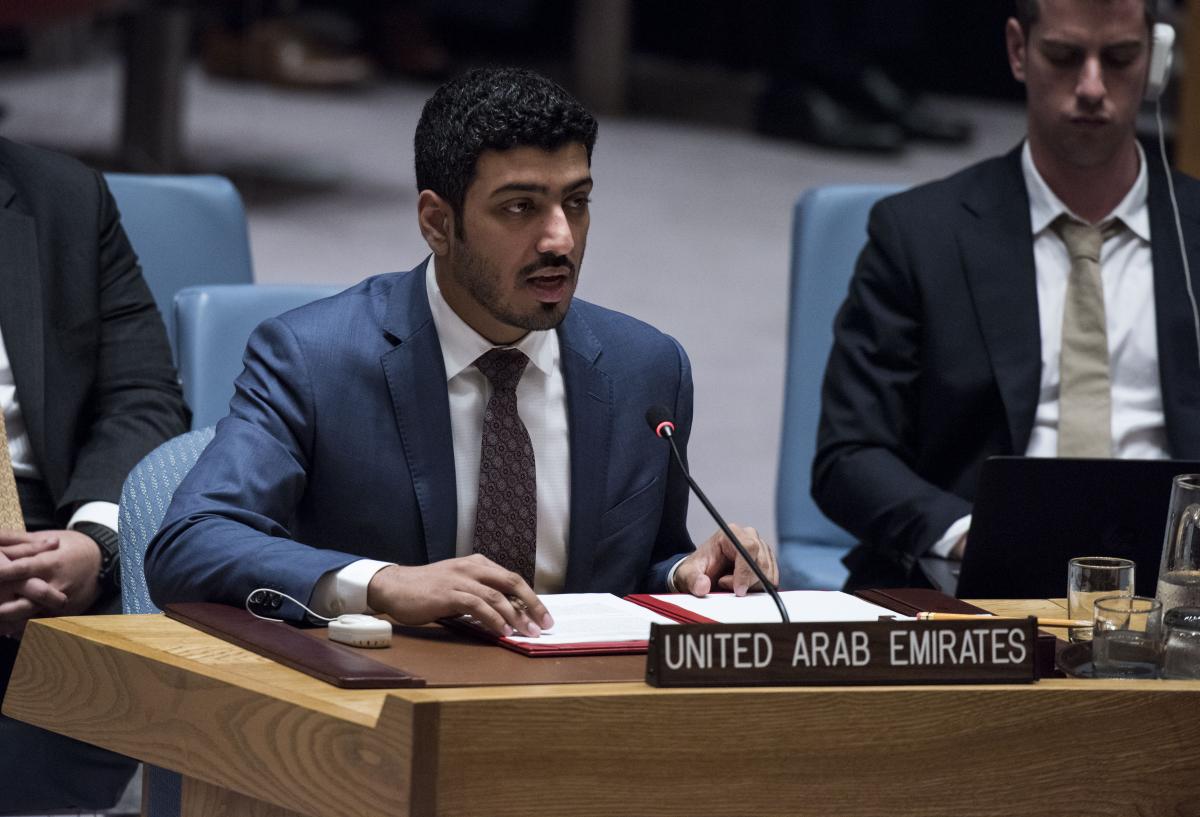NEW YORK 26th July 2017 – At the Security Council Open Debate on the Middle East, including the Palestinian question, Tuesday, Ahmed Al Mahmoud, member of the Permanent Mission of the United Arab Emirates to the UN, called for the removal of all obstructions to access for worshippers at Al-Aqsa Mosque.
Speaking before members of the United Nations Security Council, Al Mahmoud expressed that the UAE was alarmed by Israel’s continued aggression towards the holy sites in Jerusalem and emphasized that historical and legal status of Al-Aqsa Mosque must be respected.
Al Mahmoud called on the international community to engage to de-escalate the current tensions and urge Israel to honor its legal and international commitments. He also expressed the UAE’s support for His Majesty King Abdullah of the Hashemite Kingdom of Jordan, the custodian of Muslim holy site in East Jerusalem, in his efforts to ease the tensions and maintain the status quo on the ground.

Al Mahmoud reiterated the UAE’s long-standing support for the establishment of an independent Palestinian State, and highlighted that Israel’s illegal settlement activities pose a major obstacle to achieving a two-state solution that grants the Palestinian people their inalienable rights. He called for the international community and the Security Council to take all necessary measures to reach a two-state solution that establishes an independent Palestinian State based on June 1967 borders and with East Jerusalem as its capital, in accordance with the relevant resolutions, the Arab Peace Initiative, and the Madrid Principles.
“The paramount aim for the UAE is the promotion of security and stability in our region,” stressed Al Mahmoud.
He noted that the ongoing Israeli occupation of the Palestinian territories and lack of progress on the Palestinian issue furthered destabilization in the region, enabling the perpetuation of extremist narratives and the spreading of destructive agendas of terrorist groups.
Al Mahmoud thanked Nickolay Mladenov, Special Coordinator for the Middle East Peace Process, for his briefing at the start of the debate. He concluded his statement by stating that the Security Council should hold States accountable for violations of international law and the legally binding resolutions of the body to ensure lasting stability.
